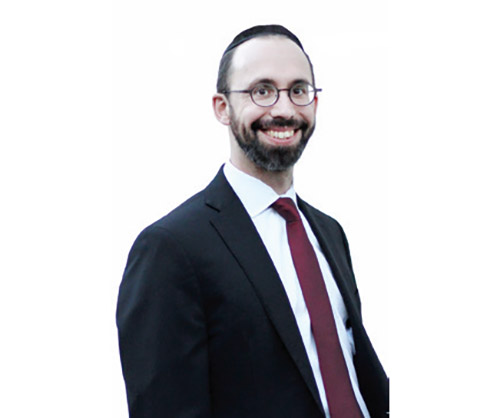
A close friend of mine is the head of an out-of-town yeshiva high school. One day, one of the parents sponsored a “tzitzis project” so the boys could learn to tie their own tzitzis. When the supplies arrived, the tzitzis strings were already attached to the garments! The rosh yeshiva quickly switched gears. The new plan was now for the boys to decorate the tzitzis garments, each in their unique style, since the Gemara Shabbos says one should have beautiful tzitzis, which Rashi explains is a nice garment for the attachment of tzitzis. It was a huge hit! Even the boys who were reluctant to wear tzitzis were now wearing them proudly.
Hashem instructs the Bnei Yisrael with the mitzvah of tzitzis at the end of Parshas Shelach. This mitzvah was given to Bnei Yisrael as a reward for the actions of their great-grandfather Shem. When Noach became drunk and was standing unclothed in his tent, Shem and Yefes took a blanket and covered their father. Rashi says that in reward for clothing their father, they both received a “type of a covering” in the future. Yefes will be rewarded in the final war of Armageddon, where all his descendants who perish will be buried and not lay as corpses in the fields. Shem was rewarded with his grandchildren (Bnei Yisrael) being given the mitzvah of tzitzis. Chom, who ridiculed and degraded his father and did nothing to cover him, was punished with his descendants becoming slaves.
Why was the reward for Shem and Yefes different, since they both acted to clothe their father? Rashi notes that Shem initiated the idea to clothe their father, as is hinted in the word vayikach—and he (Shem) took, rather than vayikchu (pl.)—and they took (since Shem and Yefes both carried the blanket together). And why specifically are Shem’s descendants rewarded in their lifetimes with the mitzvah of tzitzis, as opposed to Yefes, whose descendants will be rewarded with respect in a specific instance after their demise?
The Shem Mishmuel enlightens us on the three sons and their differences. Chom was unfazed and unabashed by his father being unclothed, as he related to man no differently than to an animal. Just as animals do not wear clothing, neither do humans need clothing. Therefore, he was punished to be a slave to serve his fellow man, just as animals function for the service of man.
Yefes recognized the beauty and dignity of man and felt it was out of place for man to be unclothed. Therefore, his reward was to be accorded the proper respect for men to be buried and not lay as carcasses in the open field.
Shem recognized something deeper. Shem saw the neshama (soul) inside man and his inner spiritual beauty. He recognized that the body of a human is like a garment to the soul. Not only was it undignified for Noach to be unclothed, and a disgrace to the holy neshama that’s inside, but he also recognized that the body itself is holy and needs to be covered. This prompted him to jump and initiate the covering of his father. Therefore, Shem was rewarded with a garment that not only clothes his body, but also has the dimension of a mitzvah. The tzitzis transforms and gives a new life to the garment, recognizing that the body-soul relationship adds sanctity to the body itself.
Chom, Yefes and Shem’s view on the human being is alluded to in their names. Chom is rooted in the word cham—heat. Chom connected to the base urges and desires of man as an animal. Yefes means yafeh—beautiful—as he recognized the beauty and dignity of man. Shem means “name,” which defines the essence of something, as Shem recognized the spiritual essence of man.
The mitzvah of tzitzis reminds us of the reality that we are a neshama that is clothed by a body and that our body itself is therefore holy and special. The strings attached to the garment elevate the garment to be a mitzvah; it not only clothes a person, but gives him eternal reward. The Torah says, “One shall see the tzitzis and remember all the mitzvos of Hashem.” The tzitzis have the ability to remind us of all the mitzvos, as they are the reward for Shem’s recognizing the spiritual essence of man and how it elevates man’s body. This recognition is to be expressed in the way we act, talk, walk and dress.
Let us always realize that we were created to be holy and elevated. Every action we take and every word we utter can have sparks of kedusha (holiness.) This awareness will ensure that our behavior reflects our refined status.
By Rabbi Baruch Bodenheim
Rabbi Baruch Bodenheim is the associate rosh yeshiva of Passaic Torah Institute (PTI)/Yeshiva Ner Boruch. PTI has attracted people from all over northern New Jersey, including Teaneck, Bergenfield, Paramus, Rockaway and Fair Lawn. He initiated and continues to lead a multi-level Gemara learning program. Recently he has spread out beyond PTI to begin a weekly beis midrash program with in-depth chavrusa learning in Livingston and Springfield. This year he joined Heichal Hatorah in Teaneck as a Gemara iyun rebbe. His email is rb@ptiweb.org.










